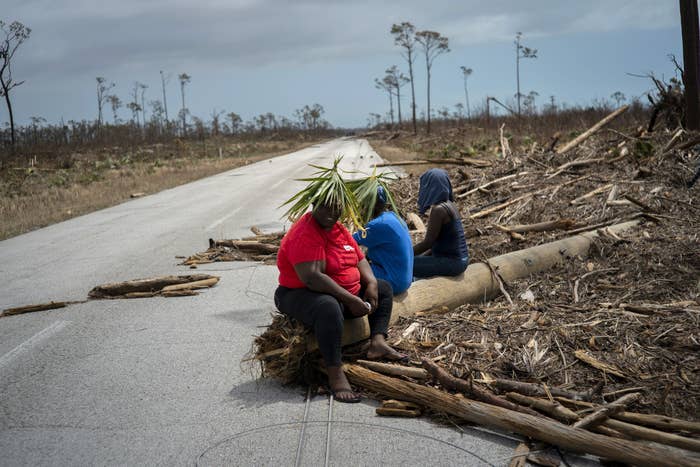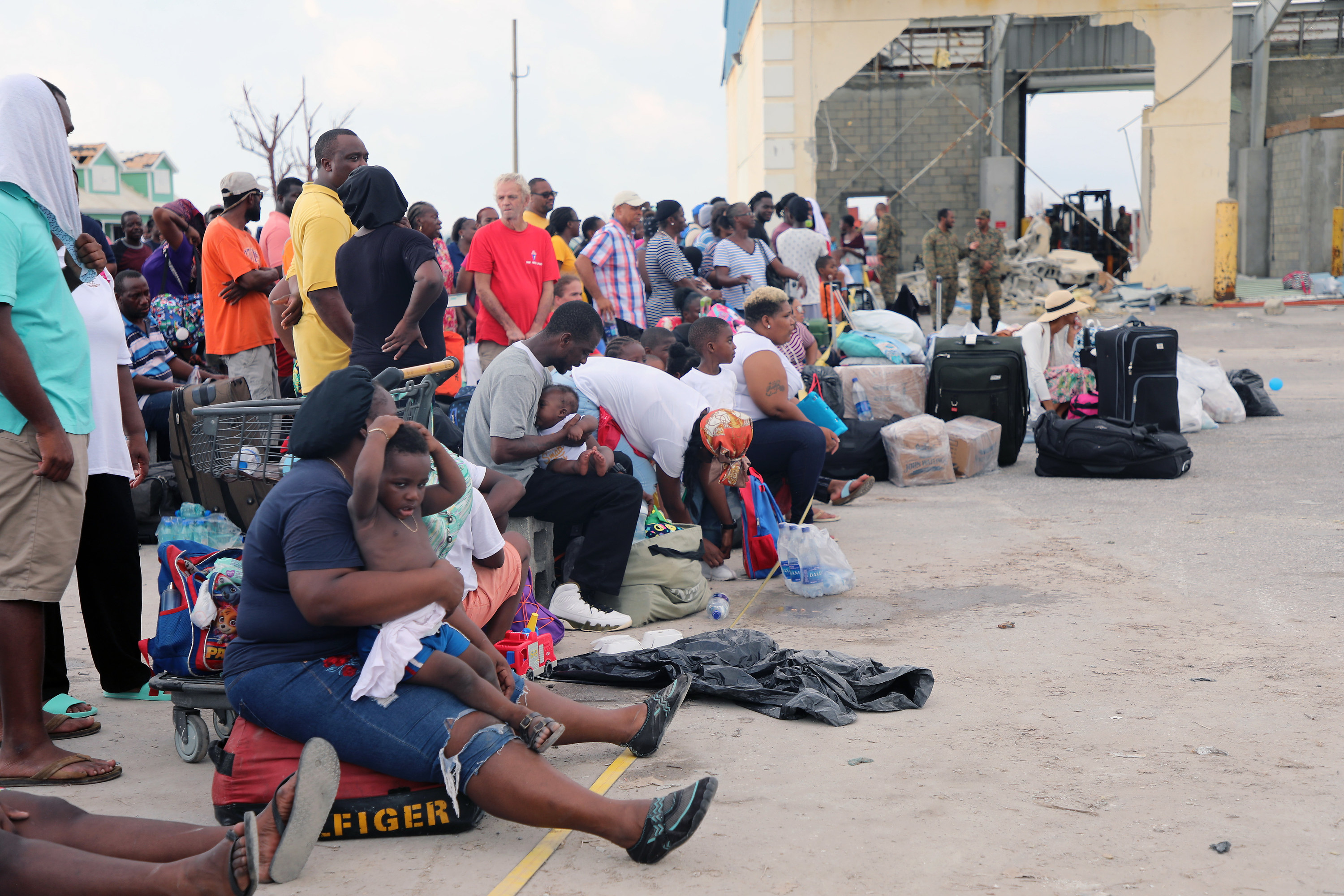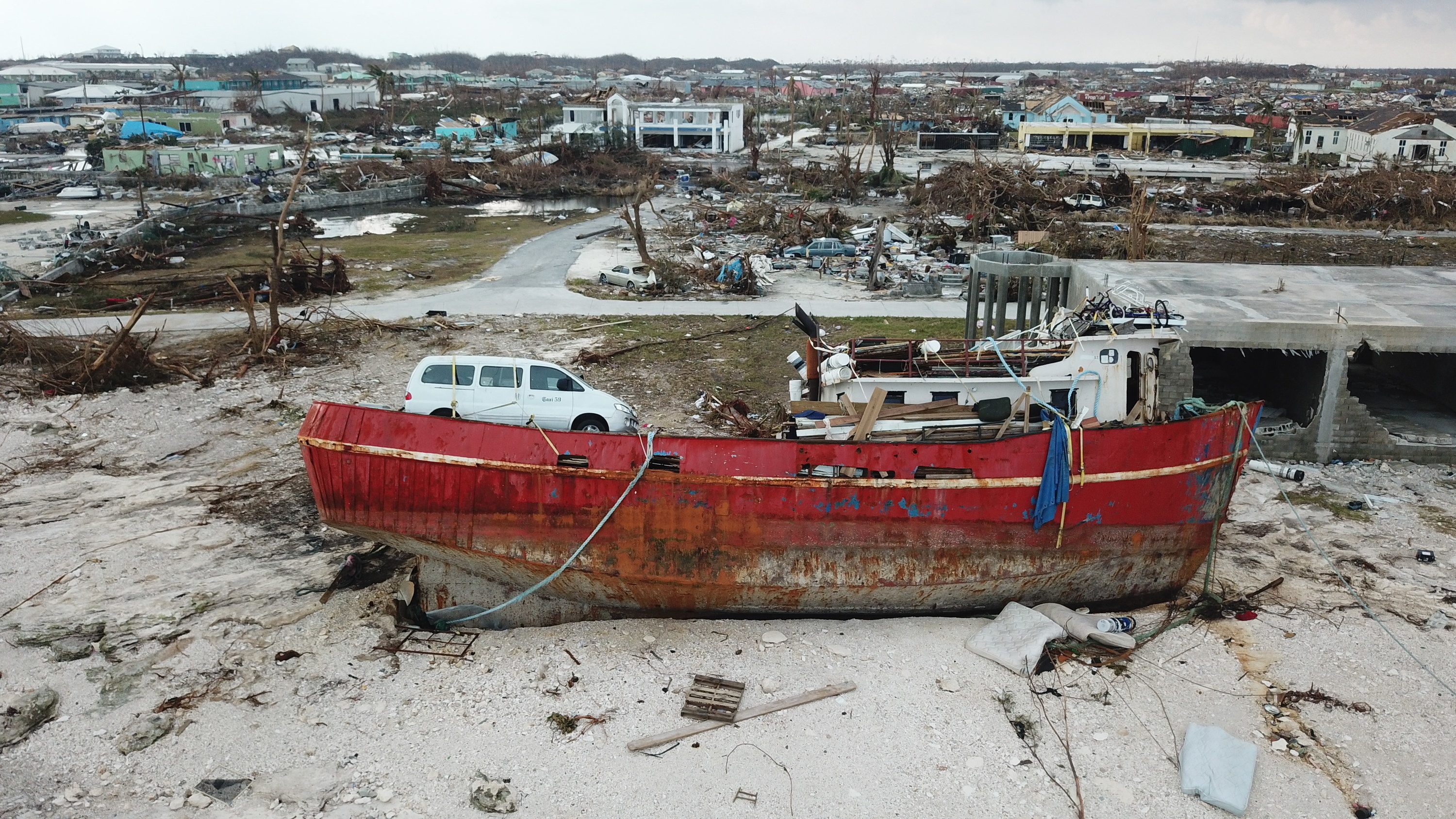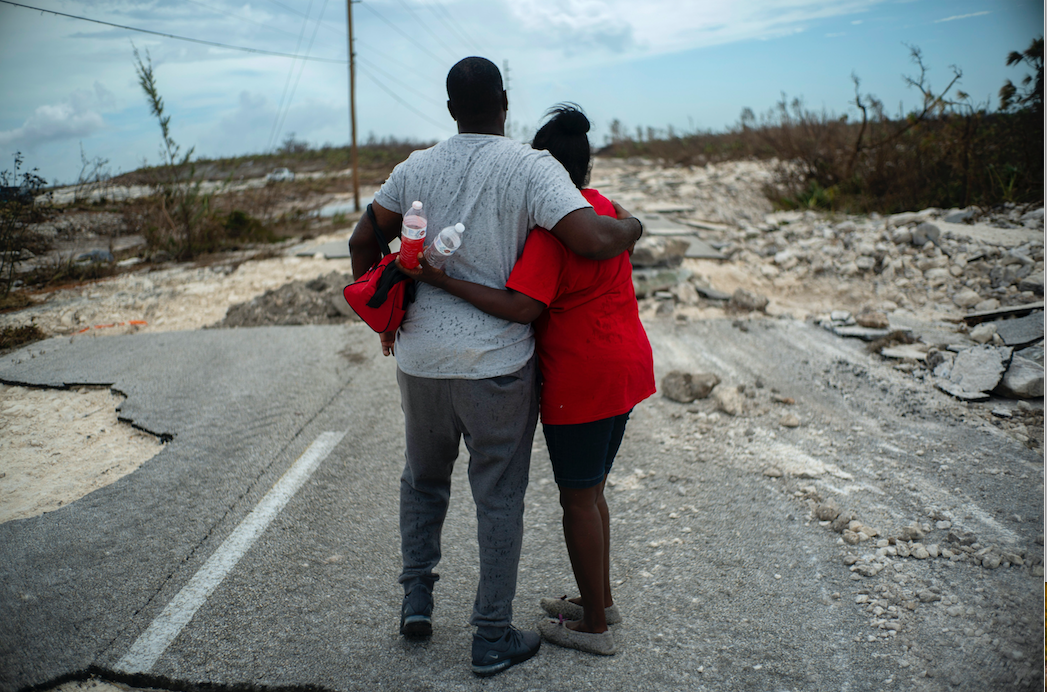As Hurricane Dorian bore down on the Bahamas, Johannes and Shay Csonka began to strategize: They were going to need boats, water, generators, planes. They had a feeling this one was going to be bad. They'd seen how Hurricane Matthew tore through the tropical islands four years earlier, ripping off roofs and leaving residents without food, water, and power for weeks.
The couple live in Lake Worth, Florida, but have close ties to and spend ample time in the Bahamas. In 2016, they started a Facebook page that quickly became a hub for recovery efforts and then transformed into a substantial relief fund that helped aircraft transport more than 100,000 pounds of supplies to devastated towns like Nassau and West End.
On Sept. 1, they revived the page, renamed it Hurricane Dorian Bahamas Relief, and got to work.
"When Hurricane Dorian started gathering force we changed the Facebook page name to get ready for this one," Johannes Csonka said Thursday night after returning home from an aid delivery. "It had such a wide impact on the Northern Bahamas, we knew the operation was going to need to be a lot bigger. And we were right. They now have nothing."
The Category 5 hurricane, the most powerful storm to strike the island chain in about a century, has returned most of the Bahamas "back to the Stone Ages," the 41-year-old volunteer said.
As of Friday night, 43 people are dead and the nation's prime minister said that number is "expected to significantly increase," calling the "loss of life we are experiencing catastrophic and devastating. Tens of thousands of Bahamians are left without basic necessities as aid groups and government agencies continue to search for survivors and try to get supplies to decimated swaths of the island chain.

More than 400,000 people live across 700 islands, 30 of which are inhabited and many were already cut off from the nation's transportation hubs. According to the United Nations, more than 76,000 people "need urgent support."
That's where groups like Hurricane Dorian Bahamas Relief and a swarming, tireless network of nonprofits, charities, yacht clubs, dive companies, and Floridians with small boats and planes come in.
For nearly a week, they have been coordinating over WhatsApp, satellite phones, intricate Excel spreadsheets, and Facebook groups to gather and deliver mounds of water, food, diapers, and medical supplies to increasingly desperate residents.
What was so different about Dorian, experts say, is that the hurricane hunkered down over the Bahamas for two days, sending wind gusts of more than 220 mph and up to 25 feet of storm surge into vulnerable, low-lying neighborhoods, wreaking "generational devastation" and leaving the smaller, more remote islands completely cut off from aid.
"There are these small fishing communities, like Sweetings Cay, that have been completely destroyed," Csonka said. "Maybe 150 people live there. We flew over there yesterday and saw people waving their hands for help, and the government doesn't have the ability to get to those areas right now because they just don't have the force to be there."
With the help of other organizations like Island Time Charters, Hurricane Dorian Bahamas Relief has been collecting donations from across the US, finding facilities to house the goods, and then corralling boats and aircraft to transport the supplies to drop-off points where volunteers are waiting to help distribute them.

"We started with 10 boats and 8 aircraft and now we're up to 288 aircraft that have reached out wanting to help," Csonka said. "It's turned into a major effort. People who want to help have been coming out of the woodwork, so we pulled all our resources together and have been working as one."
He chuckled, adding, "I've never been on Facebook so much in my life."
A crew of friends, fellow divers, and strangers wanting to help are now answering the hundreds of messages the Facebook page gets a day. Spreadsheets with teams, water cases, food boxes, Cesna tail numbers, and boat names are constantly updated.
The volunteer network working to get supplies to the overwhelmed islands is vast, diverse, and steadfast.
Along with bigger companies and nonprofits like Royal Caribbean Cruises and chef José Andrés's World Central Kitchen, which has been serving hot meals since the start of the storm, resorts, small hotels, and marinas are linking up with charities to load up and get small boats, which are better able to navigate the shallow passageways, to stranded communities.
"We need everything from medicine to diapers, we need absolutely everything," said Sergio Nativi, the executive director of Old Bahama Bay Resort, which has turned into a makeshift airport and drop-off center. "The water table has been compromised and we're walking a fine line between what's available and what we're running out of."
For many Floridians, the Bahamas is like a "second home," and the relationship between the two bodies of land is "very close, like a family," he said.
"It could have been us," said Nativi, who is currently stationed in Florida. "People have ties to different islands. I'm getting calls from people in Virginia who want to fly out and deliver goods."
The resort's thin, basic airstrip is now bustling as five different planes from different groups and private citizens unload "as much as they can carry."
Although the Bahamian people are "really resilient," Nativi said the messages he is getting from friends through channels like WhatsApp are serious and concerning as they describe dwindling medical supplies and efforts to find "anywhere that's dry."
"People are happy they are alive, but everything is a concern right now," he said.

Sitting in front of four large computer screens from his office in San Diego, Mark Drewelow has also been responding to texts and WhatsApp messages from residents asking when and if aid is coming; how to help a friend with a broken leg who's trapped in an attic; where should they go to get food.
"The Bahamas are facing an unprecedented situation. It's as bad as anything I have ever seen," said Drewelow, who founded YachtAid Global, a nonprofit that's been delivering humanitarian aid to disaster areas since 2006. "A 60-mile tornado stalled over the Bahamas for days with 20-foot waves. The devastation spans hundreds of square miles."
As soon as the weather cleared on Wednesday, a yacht filled with food, water, tarps, flashlights, and members of a disaster assistance response team set off for Nassau to drop off and stock up on supplies. Another cargo vessel carrying doctors and nurses followed.
"Hundreds of other boats" from the yachting community are also asking how they can pitch in, Drewelow said.
What's been challenging for larger organizations and government agencies, he said, is that the Bahamas islands are situated in shallow water, meaning that, unlike Puerto Rico or the US Virgin Islands, "large aid vessels aren't able to get in as close."
"Everywhere is hard to get to and there haven't been many official cleared routes for boats to get to," he said. "And many volunteers and disaster relief teams are spending their entire days identifying medical evacuations and stabilizing people. There appears to be a lot of people injured, a huge volume of cuts, bruises, and need for care."

Utterly overwhelmed, volunteers say the Bahamian government has been scrambling to address the unprecedented need while trying to regulate the swarms of private aircraft and vessels trying to come in. On Thursday, Facebook groups bubbled with reports of flight restrictions and officials turning away boats filled with critical supplies.
Csonka, though, was able to touch down at one airport that's still functioning on the island of Treasure Cay.
Carrying bags filled with hot Egg McMuffins from McDonald's to hand out to the hundred or so people milling around because they had heard a supplies delivery was incoming, Csonka said he's still struggling to process the magnitude of what's gone and what's needed.
"They have nothing, nothing," he said. "People have no way to communicate, no information, no food, no water, they barely have gasoline to get around."
There's no real government presence, either, he said. But he understands why.
"They have dead bodies to deal with."
